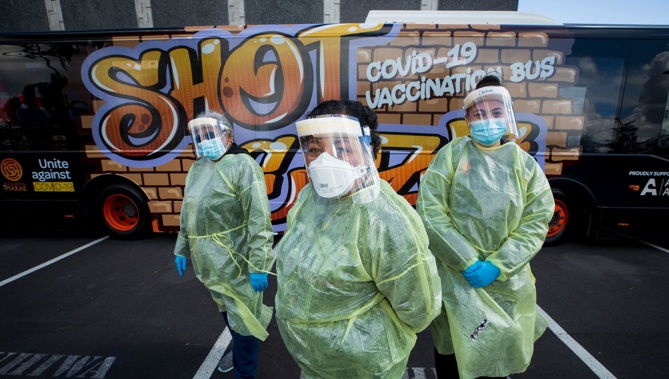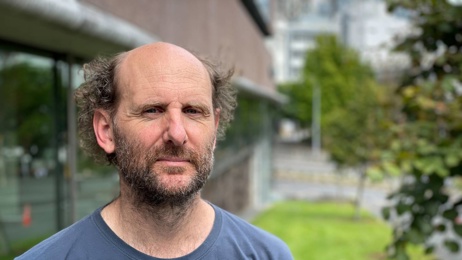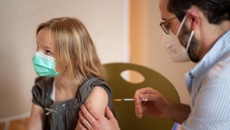
There are 56 new community cases of Covid-19 in New Zealand today - 42 in Auckland, 4 in Waikato, 6 in the Bay of Plenty, 2 in the Lakes district, one in Taranaki and one case that was detected in Tairāwhiti is now in Tauranga.
There are 48 people in hospitals across Auckland, Waikato and Tauranga. Seven are in ICU.
A person who tested positive for Covid in Wellington was reported yesterday, sending shock waves across the region.
Lower Hutt mayor Campbell Barry said he understood the new locations of interest would be unnerving for people, especially for those finishing their Christmas shopping.
"It's clear we have Covid in our community in Lower Hutt and that will be unsettling for a lot of people, but we are prepared for this and have worked really hard to get high vaccination rates across Hutt Valley."
The person was self-isolating, and interviews had identified a small number of household contacts, who were also isolating and with testing arranged for them.
Stores in Upper Hutt, Lower Hutt and Naenae were the first locations of interest to be announced in the Wellington region since the Auckland border opened.
Meanwhile, the recent New Zealand returnee who self-discharged from Auckland's Middlemore Hospital on Monday, along with their child, has voluntarily returned to an MIQ facility.
The pair returned to MIQ on Tuesday night and have six days of their isolation still to complete.
With more Omicron cases knocking on New Zealand's door, the Government on Tuesday introduced a suite of measures to keep the variant out of the country.
In Australia, New South Wales today reported a record 5715 new cases of Covid-19 as the new strain sweeps the state.
With the NSW outbreak expected to grow, Covid-19 Response Minister Chris Hipkins said it was too high risk to open the border in mid-January as planned.
In pushing back that reopening date to the end of February, Hipkins said he was "sorry" not to meet the original deadline but that Covid continued to throw up more challenges for governments around the world.
Cabinet also agreed to reduce the interval between the second dose and the booster shot from 6 months to 4 months, starting in January.
Around 3 million NZers will be due for their booster by the end of February, and by then the country will be better protected against Omicron, Hipkins said.
People can book in for their booster shots from late January. Those who are harder reach, including Maori, will be able to get their booster before winter hits, he said.
Hipkins said there will be enough boosters for everyone. Given the experience in the rollout thus far, there needed to be a stronger focus on people in remote communities.
People who have been fully vaccinated can still contract Covid and get sick, Hipkins said, and that's why booster shots were "all the more important" to reduce the risk of severe illness.
Take your Radio, Podcasts and Music with you









